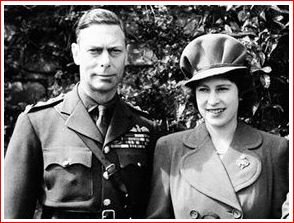Betsypaige
Heir Presumptive
- Joined
- Dec 20, 2010
- Messages
- 2,629
- City
- Woodbury
- Country
- United States
I'm re-reading (well, more like skimming) The Reluctant King again and it's just heartbreaking to read about George's childhood, whatwith the abusive nanny, the knock-knees, the stomach problems and the stammer. He was known to have a fierce temper; I wonder how much of that is just inherited (seems like his father and grandfather were pretty explosive) and how much due to frustration - frustration that started when he was a little boy.
What's amazing is this sense of insecurity he had about his elder brother, something I'm not sure ( based on what I've read) that he ever completely got over. He apparently spoiled Princess Margaret because he didn't ever want her to feel the sense of inadequacy that he did, the sense that he was forever in his brother's shadow based on the 18 month age difference I know there's a distance always between the royal family and the general public, but George VI seems like an awfully human king- perhaps that's one reason why he was beloved.
What's amazing is this sense of insecurity he had about his elder brother, something I'm not sure ( based on what I've read) that he ever completely got over. He apparently spoiled Princess Margaret because he didn't ever want her to feel the sense of inadequacy that he did, the sense that he was forever in his brother's shadow based on the 18 month age difference I know there's a distance always between the royal family and the general public, but George VI seems like an awfully human king- perhaps that's one reason why he was beloved.




